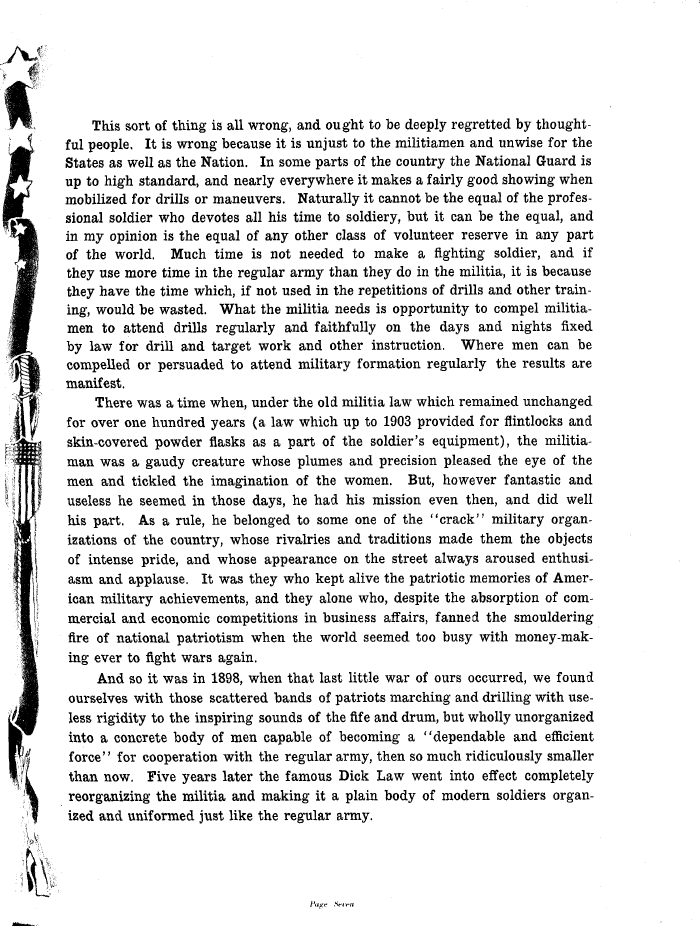 |
||||
 |
||||
| This sort of thing is all wrong, and ought to be deeply regretted by thoughtful people. It is wrong because it is unjust to the militiamen and unwise for the States as well as the Nation. In some parts of the country the National Guard is up to high standard, and nearly everywhere it makes a fairly good showing when mobilized for drills or maneuvers. Naturally it cannot be the equal of the professional soldier who devotes all his time to soldiery, but it can be the equal, and in my opinion is the equal of any other class of volunteer reserve in any part of the world. Much time is not needed to make a fighting soldier, and if they use more time in the regular army than they do in the militia, it is because they have the time which, if not used in the repetitions of drills and other training, would be wasted. What the militia needs is opportunity to compel militiamen to attend drills regularly and faithfully on the days and nights fixed by law for drill and target work and other instruction. Where men can be compelled or persuaded to attend military formation regularly the results are manifest. There was a time when, under the old militia law which remained unchanged for over one hundred years (a law which up to 1903 provided for flintlocks and skin-covered powder flasks as a part of the soldier's equipment), the militiaman was a gaudy creature whose plumes and precision pleased the eye of the men and tickled the imagination of the women. But, however fantastic and useless he seemed in those days, he had his mission even then, and did well his part. As a rule, he belonged to some one of the "crack" military organizations of the country, whose rivalries and traditions made them the objects of intense pride, and whose appearance on the street always aroused enthusiasm and applause. It was they who kept alive the patriotic memories of American military achievements, and they alone who, despite the absorption of commercial and economic competitions in business affairs, fanned the smouldering fire of national patriotism when the world seemed too busy with money-making ever to fight wars again. And so it was in 1898, when that last little war of ours occurred, we found ourselves with those scattered bands of patriots marching and drilling with useless rigidity to the inspiring sounds of the fife and drum, but wholly unorganized into a concrete body of men capable of becoming a "dependable and efficient force" for cooperation with the regular army, then so much ridiculously smaller than now. Five years later the famous Dick Law went into effect completely reorganizing the militia and making it a plain body of modern soldiers organized and uniformed just like the regular army. fc f'age .Sciwi |